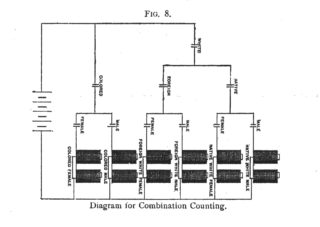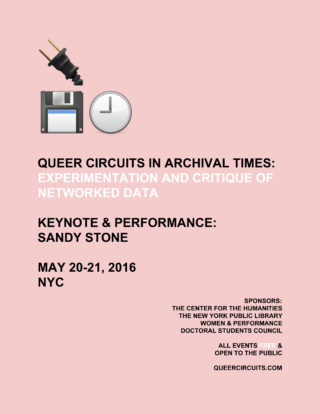When construction began on the Interstate Highway System in the 1950’s, the state began a project of social and cultural engineering that began to reconfigure how we understood mobility, cities, race, community and indeed America itself. However, we are likely to think little of this vast sprawling system except in traffic, certainly not dwelling on the military logics embedded in what is formally known as the Dwight D. Eisenhower National System of Interstate and Defense Highways. Such is the power of infrastructure--to become a neutral background for activity, exerting its force not through the discipline of enclosure, but the softer control of what Gilles Deleuze famously described as surfing “undulatory, in orbit, in a continuous network” (from "Postscript on the Societies of Control" October 59 Winter 1992).
Deleuze’s short but widely cited article loomed large during Friday’s discussion between Patricia Clough, Jasbir Puar and Seb Franklin on the topic of Franklin’s new book Control: Digitality as Cultural Logic. In Control, Franklin proposes that the cybernetic model of digital control, a control via the removal of noise in a system to render it legible, has reshaped social life in its image. Franklin began the evening by giving a brief overview of his book, highlighting a variety of ways that the digital serves as the cultural logic of late capitalism. In this model digitality describes not simply a technical system but a generalizable metaphor that frames sociality, governance and life itself as analytical systems of control and exclusion. This notion of digitality as epistemology precedes and exceeds computation, and Franklin finds echoes of this logic in the 20th century writings of Marx and Charles Babbage and its cultural tentacles stretching from labor management to literature and even language and subjectivity.
After the presentation, comments by Patricia Clough and Jasbir Puar framed a lively discussion. Clough began by praising Control’s impressive breadth and insightful analysis of the ways that cybernetic theories of the digital are entangled with the mutable persistence of capitalism. Clough cautioned however that Franklin’s version of control is framed by first-order cybernetics, which presumes a system controlled by an outside observer. Clough asks us to imagine how capitalism might have already shifted through both second order cybernetics (which complicates the relationship between system and observer) and a post-cybernetic digital logic that seeks less to control a system than to profit through the prehensive modulation of emergent forms of sociality.
Puar connected Franklin’s work to both her current research and the surrounding installation to consider the mechanism of control in contemporary Palestine. Picking up on what Franklin notes are the necessary exclusions required for the control of a system, Puar argues for an understanding of Gaza as a population disabled through exclusion and capture. Puar looks at Gaza as a scientific lab of trauma, and as the systemization of what Lauren Berlant has termed “slow death.” Encouraging the audience to focus on slow part of this equation rather than the more frequently emphasized death, Puar describes a system of measuring, restricting and maiming.




